
Idiomy w języku angielskim z owocami i warzywami
Czerwiec 8, 2022 Agata Pruszyńska
Zapraszam na kolejną odsłonę angielskich idiomów, które mogą niezwykle ubogacić nasz język, o ile poprawnie ich użyjemy 🙂 Tym razem zajmiemy się idiomami związanymi z warzywami i owocami. Przygotowałam dla was serię składającą się z 18 popularnych wyrażeń idiomatycznych. Mam nadzieję, że Wam się spodobają, a zdjęcia i przykładowe zdania pomogą Wam w ich zapamiętaniu. Osobiście bardzo lubię idiomy, ponieważ dzięki nim mój język jest bardziej obrazowy i żywy.
Po części teoretycznej zapraszam Was serdecznie na część praktyczną, czyli ćwiczenia, które znajdziecie tutaj – Idiomy angielskie z owocami i warzywami – Ćwiczenia.
Idiomy angielskie z owocami i warzywami
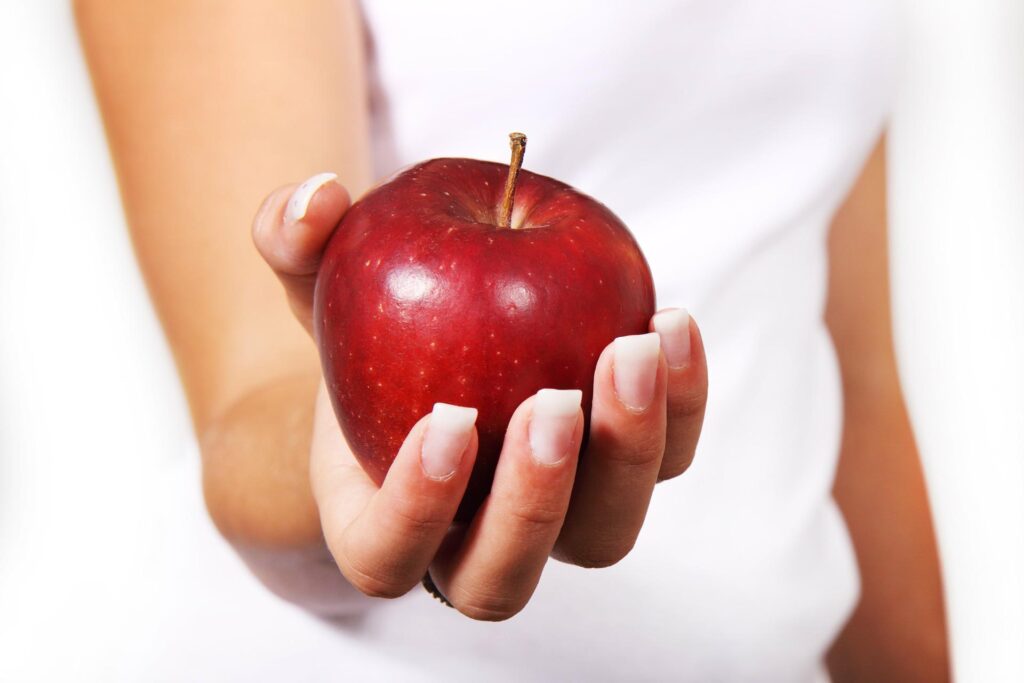 (1) TO BE THE APPLE OF SOMEBODY’S EYE – to be someone’s favourite person and be loved most (być czyimś oczkiem w głowie)
(1) TO BE THE APPLE OF SOMEBODY’S EYE – to be someone’s favourite person and be loved most (być czyimś oczkiem w głowie)
Examples:
➡ 1. It doesn’t matter that he sometimes behaves badly. He will always be the apple of his mother’s eye.
➡ 2. All teachers adore pupils who study really hard and diligently. Such a pupil is the apple of their teacher’s eye.
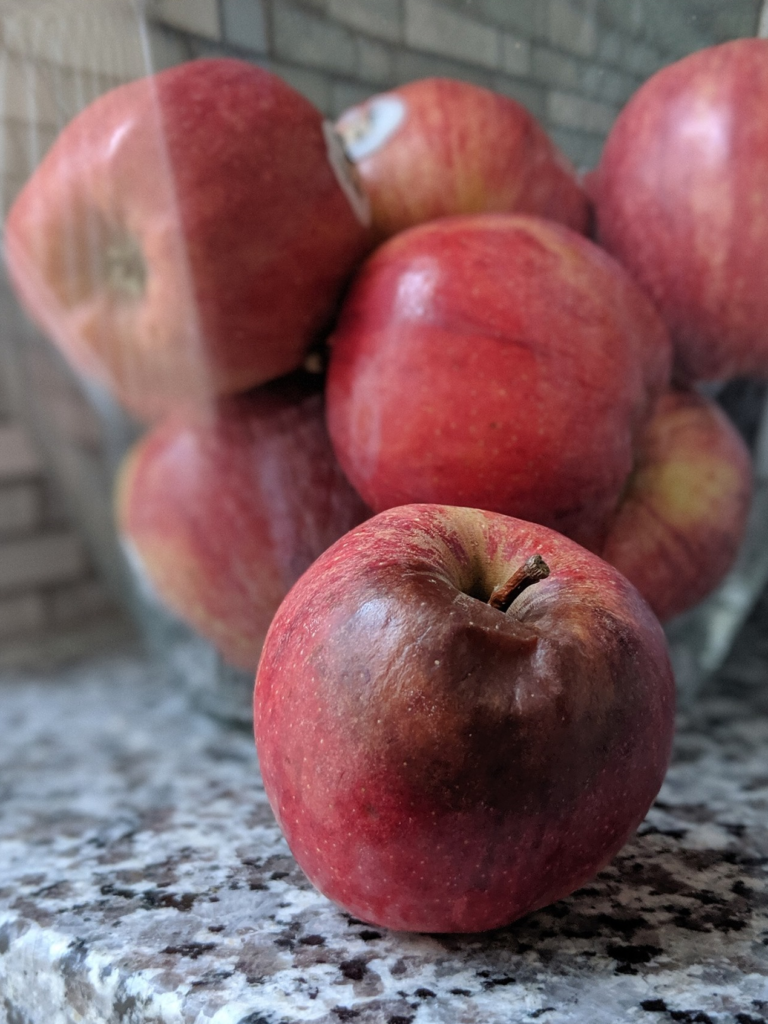 (2) ONE BAD APPLE SPOILS THE BARREL – it means that one person or thing can ruin the whole group’s effort, project, etc. It’s connected with a rotten apple which can cause other apples’ decaying.
(2) ONE BAD APPLE SPOILS THE BARREL – it means that one person or thing can ruin the whole group’s effort, project, etc. It’s connected with a rotten apple which can cause other apples’ decaying.
This expression can also look like that: one rotten / bad apple spoils the (whole) barrel / bunch (w każdym stadzie znajdzie się czarna owca)
Examples:
➡ 1. Everything went well but then Jeremy didn’t finish his part on time. As you know – one bad apple spoils the whole barrel.
➡ 2. Our class is very clever in general. What’s more, we support each other and we’re very amicable. But there is also this one rough boy – Adam Smith. Unfortunately, one bad apple spoils the barrel.
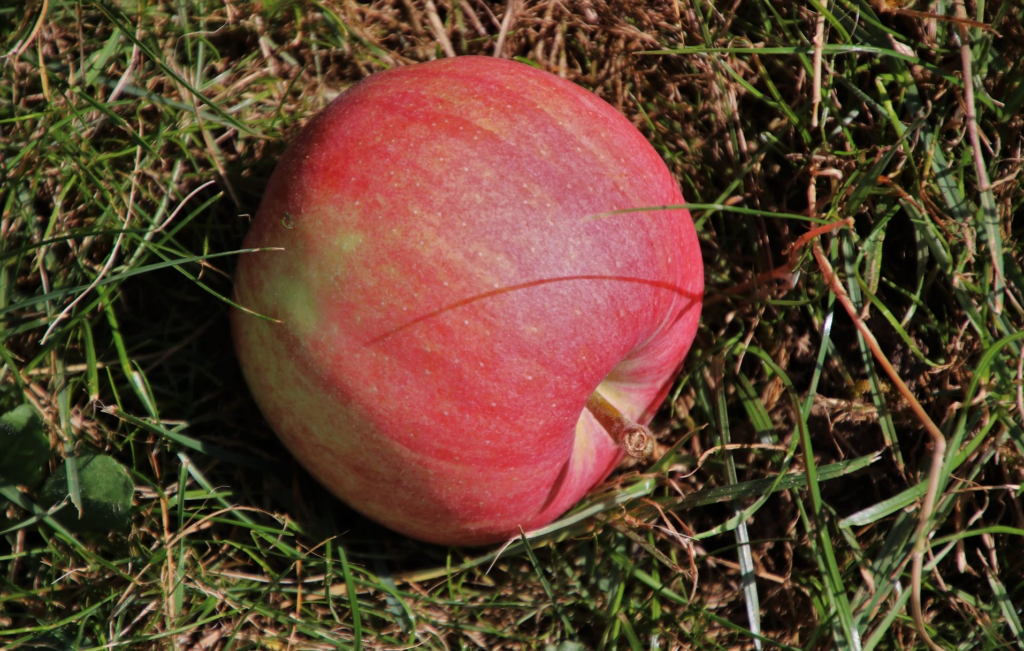 (3) THE APPLE NEVER FALLS FAR FROM THE TREE – we use this expression to say that somebody is really similar to their parents, has got the same character traits or has a talent for doing sth (niedaleko pada jabłko od jabłoni)
(3) THE APPLE NEVER FALLS FAR FROM THE TREE – we use this expression to say that somebody is really similar to their parents, has got the same character traits or has a talent for doing sth (niedaleko pada jabłko od jabłoni)
This idiomatic expression can also be used in a bit different form: the apple doesn’t fall far from the tree.
Examples:
➡ 1. Anna is as brilliant at learning foreign languages as her father is. It’s true that the apple never falls far from the tree.
➡ 2. Peter resembles his father so much. He takes after his father proving that the apple never falls far from the tree.
 (4) TO GO BANANAS – to get very angry (wściec się)
(4) TO GO BANANAS – to get very angry (wściec się)
Examples:
➡ 1. I borrowed my brother’s car and I scraped it against the fence. I’m sure he’ll go bananas when he finds out.
➡ 2. Don’t tell my sister that I took her clothes. I don’t want her to go bananas.
 (5) TO BE AS COOL AS A CUCUMBER – to be very self-controlled under pressure. If someone is as cool as a cucumber, it means that this person is extremely calm and composed, especially in a stressful situation. (zachowywać stoicki spokój, być opanowanym)
(5) TO BE AS COOL AS A CUCUMBER – to be very self-controlled under pressure. If someone is as cool as a cucumber, it means that this person is extremely calm and composed, especially in a stressful situation. (zachowywać stoicki spokój, być opanowanym)
Examples:
➡ 1. We were put under pressure to finish our project on time, but Rebeca seemed to be as cool as a cucumber. She was perfectly calm and self-possessed.
➡ 2. Hot-headed people are unable to be as cool as a cucumber.
 (6) TO SPILL THE BEANS – When somebody has spilled the beans, it means that they’ve revealed a secret. (wygadać się, puścić parę z ust)
(6) TO SPILL THE BEANS – When somebody has spilled the beans, it means that they’ve revealed a secret. (wygadać się, puścić parę z ust)
Examples:
➡ 1. Please do not spill the beans. It’s a special surprise for my sister’s birthday party.
➡ 2. I shouldn’t have spilled the beans about their engagement. They wanted to keep it in secret.
 (7) TO BE FULL OF BEANS – to be bursting or brimming with energy, to be full of energy (tryskać energią)
(7) TO BE FULL OF BEANS – to be bursting or brimming with energy, to be full of energy (tryskać energią)
Examples:
➡ 1. I’ve never seen him so happy. He’s full of beans.
➡ 2. Anna has been full of beans since Peter proposed to her a few weeks ago.
 (8) SOUR GRAPES – This expression is used to describe a person’s attitude towards the others. This person is jealous of someone else’s success and pretends that he doesn’t care about it. (udawanie niechęci, żeby ukryć zazdrość/zawiść; kwaśne winogrona)
(8) SOUR GRAPES – This expression is used to describe a person’s attitude towards the others. This person is jealous of someone else’s success and pretends that he doesn’t care about it. (udawanie niechęci, żeby ukryć zazdrość/zawiść; kwaśne winogrona)
Another possible expression is: It’s a touch of sour grapes! (To syndrom kwaśnych winogron!)
Examples:
➡ 1. He said that he didn’t want to get into Harvard, but it was obviously sour grapes.
➡ 2. I know that you really want to have this luxurious car. It is just sour grapes when you are mocking it.
 (9) TO BE IN A (PRETTY / RIGHT) PICKLE – We use this expression when we are in a difficult or troublesome situation. We have got into trouble and as a result, we have to take / face / suffer the consequences of our acting. (napytać sobie biedy, ładnie się urządzić, być w opałach)
(9) TO BE IN A (PRETTY / RIGHT) PICKLE – We use this expression when we are in a difficult or troublesome situation. We have got into trouble and as a result, we have to take / face / suffer the consequences of our acting. (napytać sobie biedy, ładnie się urządzić, być w opałach)
Examples:
➡ 1. I’m in a pretty pickle because I haven’t prepared diligently for my exam.
➡ 2. You’re grounded! If you make an attempt at going out, you will be in a pickle!
 (10) TO KNOW ONE’S ONION – to know a lot about something, to be thoroughly acquainted with something. We use this expression when we talk about people who are knowledgeable about or skilled in some area. They are real experts in the field of something. (znać się na rzeczy)
(10) TO KNOW ONE’S ONION – to know a lot about something, to be thoroughly acquainted with something. We use this expression when we talk about people who are knowledgeable about or skilled in some area. They are real experts in the field of something. (znać się na rzeczy)
Examples:
➡ 1. Luke knows his onion – he’s the best engineer we have ever taken on in our company.
➡ 2. Does Alice know her onion in the field of accounting?
 (11) TO BE LIKE TWO PEAS IN A POD – to be very similar in appearance, beliefs, interests, etc. We use this expression to describe a situation when one person bears a close resemblance to another one. (być podobnym jak dwie krople wody)
(11) TO BE LIKE TWO PEAS IN A POD – to be very similar in appearance, beliefs, interests, etc. We use this expression to describe a situation when one person bears a close resemblance to another one. (być podobnym jak dwie krople wody)
In English, there is also another expression with the same meaning: TO BE THE SPITTING IMAGE OF somebody, e.g. You’re the spitting image of your father.
Examples:
➡ 1. Sharon and Susan have the same views and beliefs. They’re like two peas in a pod.
➡ 2. I was convinced that they were twins. They were like two peas in a pod.
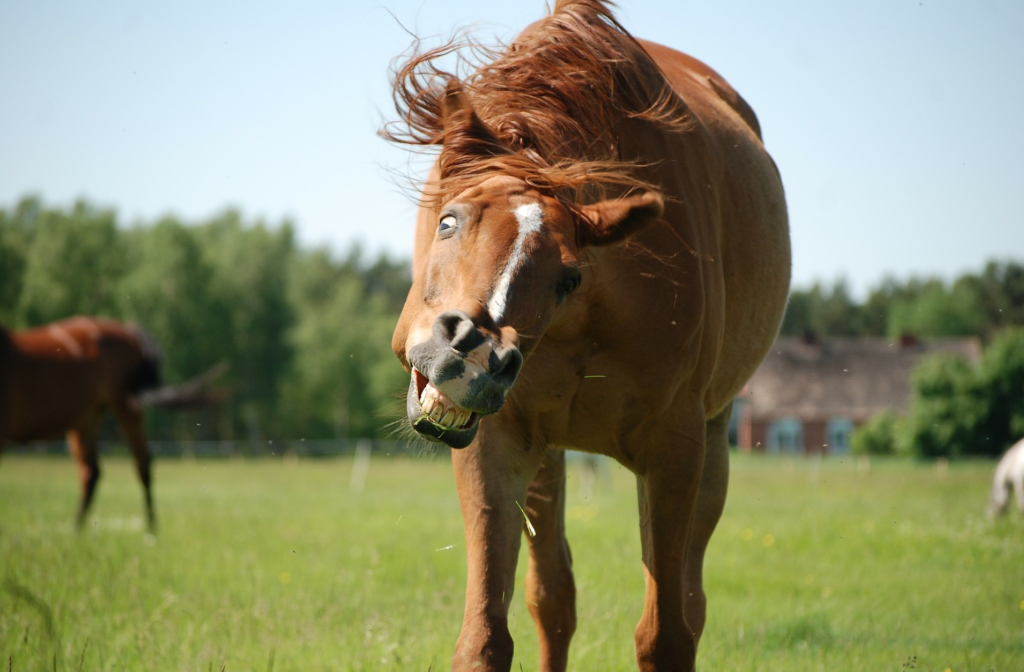 (12) A PEABRAIN – a person who is extremely foolish, dumb and stupid, somebody who lacks intelligence (ptasi móżdżek, głupek). This word is informal and there is also an adjective – pea-brained (głupi).
(12) A PEABRAIN – a person who is extremely foolish, dumb and stupid, somebody who lacks intelligence (ptasi móżdżek, głupek). This word is informal and there is also an adjective – pea-brained (głupi).
Typical collocations with ‘pea-brained’ are as follows:
a pea-brained moron,
a pea-brained idiot,
a pea-brained jerk.
Examples:
➡ 1. Don’t listen to her. She’s just a pea-brain. What she is trying to do is putting you down and making you feel dejected.
➡ 2. I hate my job because every day I have to deal with my colleagues who are pea-brained morons.
 (13) A COUCH POTATO – a person who loves spending time at home, sitting on the sofa (on the couch) in front of the TV. This person doesn’t spend time actively and might also like eating junk food while watching TV or doing nothing. (kanapowy leń, leniuch)
(13) A COUCH POTATO – a person who loves spending time at home, sitting on the sofa (on the couch) in front of the TV. This person doesn’t spend time actively and might also like eating junk food while watching TV or doing nothing. (kanapowy leń, leniuch)
Examples:
➡ 1. Ashlie is a real couch potato. She hates the gym and doing exercise. What she does is sitting in front of the TV all the time.
➡ 2. Stop being such a couch potato and go out from time to time. It will certainly do you good.
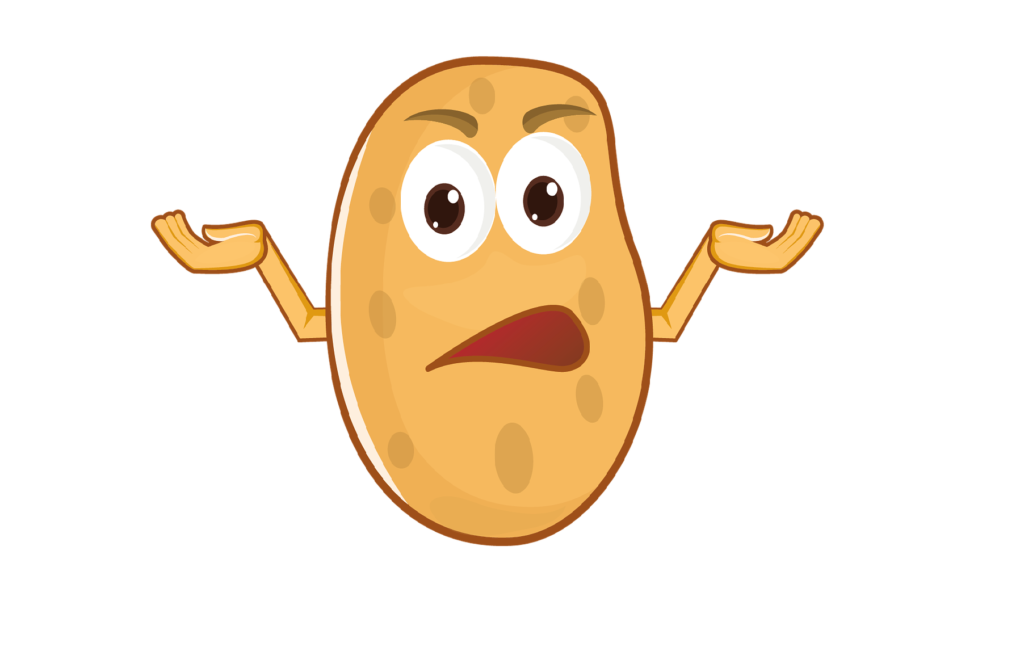 (14) A HOT POTATO – is a difficult or controversial issue which is hard to handle and which brings about disagreement. It is passed round like a hot potato which is too hot to hold. (śliska sprawa, kłopotliwy problem)
(14) A HOT POTATO – is a difficult or controversial issue which is hard to handle and which brings about disagreement. It is passed round like a hot potato which is too hot to hold. (śliska sprawa, kłopotliwy problem)
There is also an expression ‘TO DROP sb/sth LIKE A HOT POTATO’ which means to get rid of somebody immediately (pozbyć się kogoś natychmiast) or to give up something at once, e.g. an idea, plan, project (zarzucić coś natychmiast).
Examples:
➡ 1. Talking about politics might be a hot potato. It’s better not to discuss this topic.
➡ 2. The issue of death sentence might be seen as a hot potato.
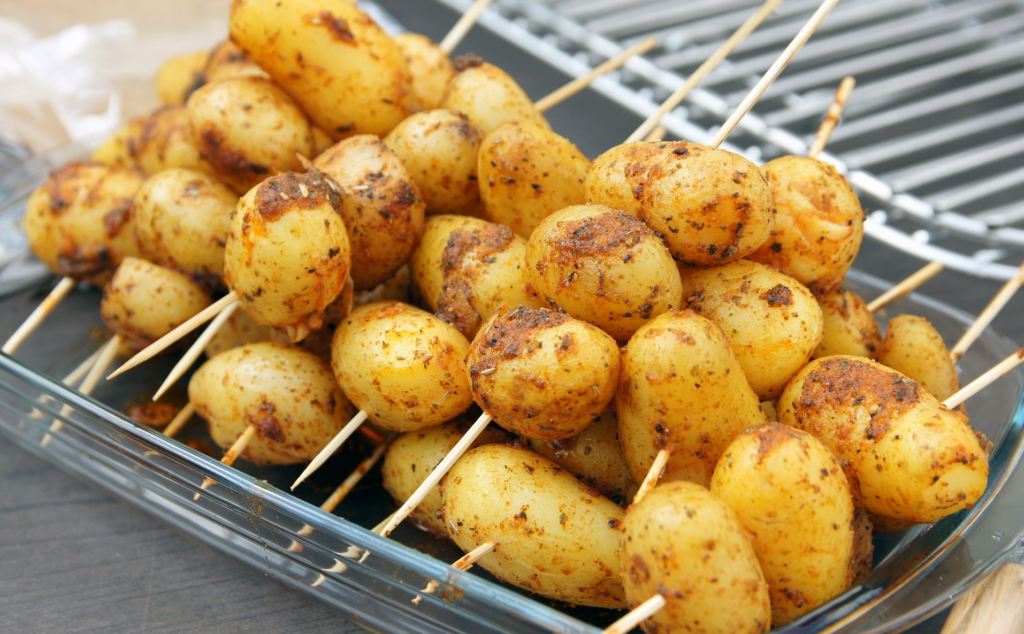 (15) SMALL POTATOES – is something unimportant and insignificant, especially when it is compared with something else (małe piwo, coś nieznaczącego ??). Another informal expression with the same meaning is ‘SMALL BEER’.
(15) SMALL POTATOES – is something unimportant and insignificant, especially when it is compared with something else (małe piwo, coś nieznaczącego ??). Another informal expression with the same meaning is ‘SMALL BEER’.
We can also say that ‘somebody is small potatoes/small beer’ which means this person is nobody of any importance (być nikim, nikim znaczącym)
Examples:
➡ 1. Don’t worry about this one test. It’s small potatoes/small beer compared to a final exam at the end of summer term.
➡ 2. They’re not going to take his remarks into consideration. He’s just small potatoes to them.
 (16) TO TURN / GO AS RED AS A BEETROOT – to redden with shame, to have a red face because of embarrassment. (poczerwienieć jak burak)
(16) TO TURN / GO AS RED AS A BEETROOT – to redden with shame, to have a red face because of embarrassment. (poczerwienieć jak burak)
Examples:
➡ 1. Susan turned as red as a beetroot when her fiancé blurted out her secret.
➡ 2. I can’t speak in public because my hands start to shake immediately and I turn as red as a beetroot.
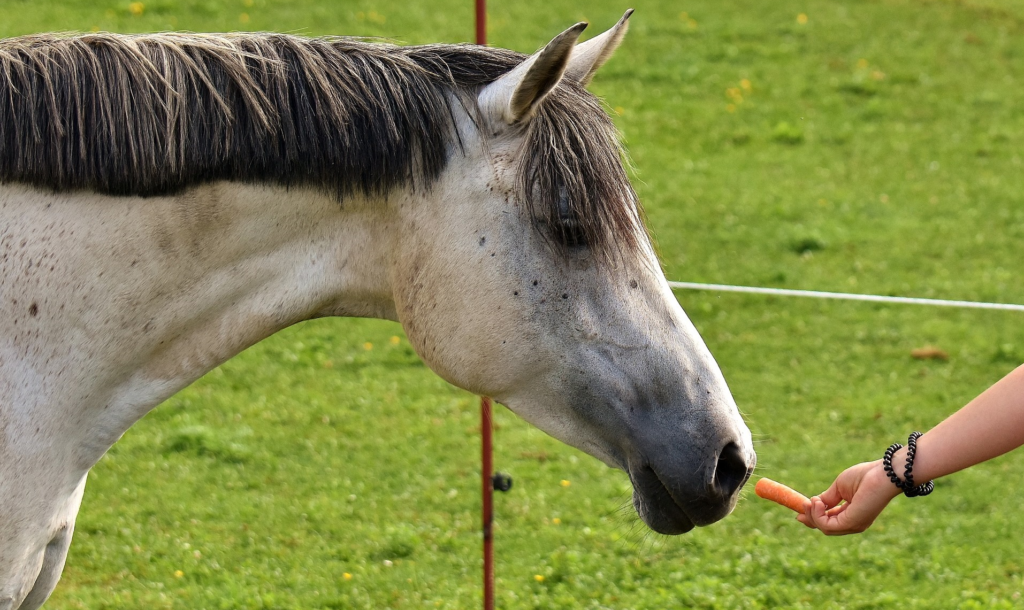 (17) CARROT AND STICK APPROACH – is a system that makes use of rewards and punishments. A person can be rewarded for good performance or punished for inappropriate behaviour. This tactic is often used with children and workers. (metoda kija i marchewki)
(17) CARROT AND STICK APPROACH – is a system that makes use of rewards and punishments. A person can be rewarded for good performance or punished for inappropriate behaviour. This tactic is often used with children and workers. (metoda kija i marchewki)
Examples:
➡ 1. Some teachers are still using the carrot and stick approach to encourage their pupils to work harder and more diligently.
➡ 2. The Prime Minister has proposed the carrot and stick approach to crack down on gangs.
 (18) SALAD DAYS – This expression refers to a period of youth and inexperience when people are full of ideas and happiness (młodzieńcze lata, cielęce lata, dobre lata)
(18) SALAD DAYS – This expression refers to a period of youth and inexperience when people are full of ideas and happiness (młodzieńcze lata, cielęce lata, dobre lata)
Examples:
➡ 1. When you are getting older and older, you miss your salad days more often.
➡ 2. Her salad days are over. She has to become mature and responsible.
Mam nadzieję, że chociaż kilka z zaprezentowanych powyżej idiomów angielskich uda Wam się zapamiętać na dłużej. Starałam się wybrać dla Was te najbardziej znane i przydatne. Osoby zainteresowane nauką idiomów zachęcam do zaglądania do zakładki – Idiomy angielski. Mam nadzieję, że ich nauka przyniesie Wam wiele satysfakcji i że dzięki niej rozwiniecie się językowo. Natomiast więcej wpisów dedykowanych angielskiemu słownictwu znajdziecie tutaj – Angielski słówka.











